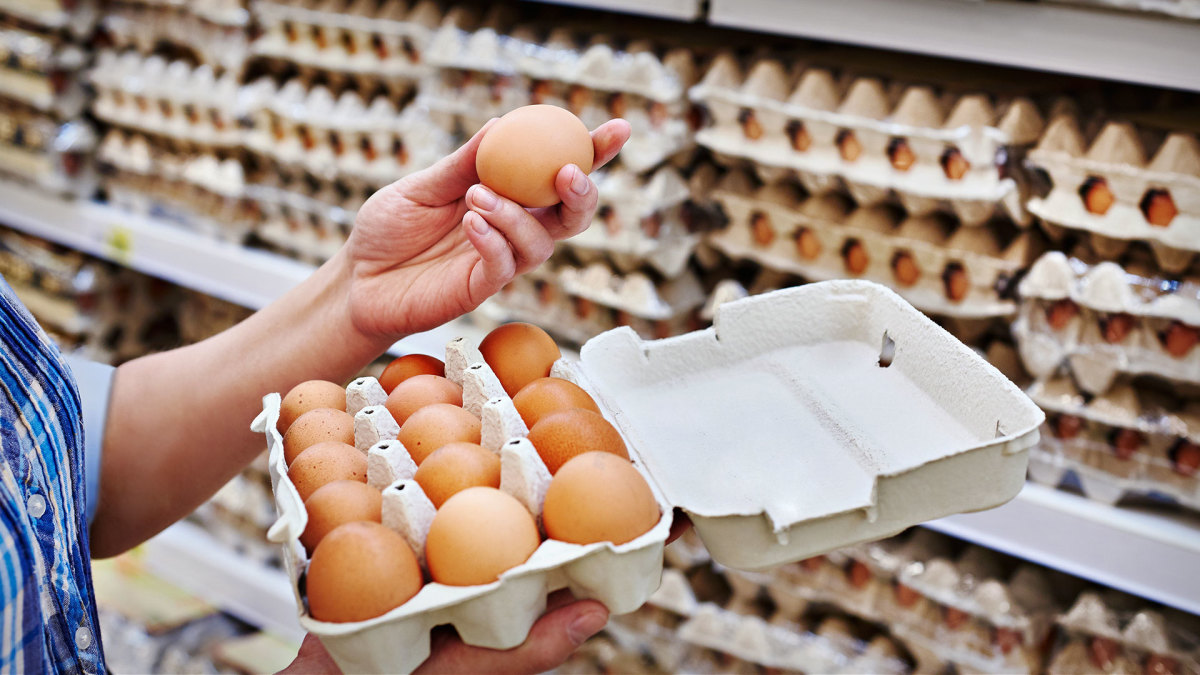Despite the number of vegans growing every day, they still account for a tiny percentage of the world’s population.
Some statistics show that about 70% of vegans return to eating meat, suggesting that a plant-based diet might be too hard for many people to maintain throughout their entire lives.
💵💰Don’t miss the move: Subscribe to TheStreet’s free daily newsletter 💰💵
Nonetheless, one thing remains clear — more and more people are experimenting with their diets to find the healthiest food choices.
The data further suggest that eggs remain one of the world’s most versatile food staples. Eggs are a common ingredient in various recipes, making them indispensable in the kitchen.
Related: Kraft Heinz issues major recall over food safety risk
According to some statistics, more than four in five Americans always keep eggs in their refrigerators and buy them at least once a month. About 87% of Americans consume eggs at least weekly.
Not only tasty, eggs are considered one of the most nutritious foods on the planet. Relatively low in calories, eggs provide protein, fat, essential vitamins, and minerals. After all, one whole egg has all the nutrients needed to develop from a single cell into a baby chicken, points out Healthline.
According to the U.S. Department of Agriculture, one large boiled egg contains the following percentages of the daily value of vitamins and minerals:
- Selenium — 28%;
- B12 — 23%;
- Riboflavin (B2) — 20%;
- Pantothenic acid (vitamin B5) — 14%;
- Vitamin A —8%;
- Phosphorus — 7%;
- Folate — 6%.
Eggs also contain vitamin E, vitamin B6, calcium, zinc, and vitamin D. All these nutrients come with only 78 calories, providing 6 grams of protein and 5 grams of fat.
But are all eggs the same?
 Studies show there is a difference between cage-free eggs and eggs laid in cage systems.
Studies show there is a difference between cage-free eggs and eggs laid in cage systems.
Image source: Getty Images
Different types of eggs: are some healthier than others?
There are about 8.3 billion egg-laying hens in the world, around the same number as people on the planet.
However, today’s hens are bred and kept much differently than the way our ancestors did. According to Our World in Data, hens often lay around 300 eggs per year, compared to commercial hens in the year 1900, which would lay about 80 eggs in one year.
Related: FDA says yes to controversial new seafood delicacy
Modern hens are not only bred to be excessively productive, but also kept in small cages with less space than a letter-sized sheet of paper. This is not a good quality of life for any living creature. Hens have no nest on which to lay their eggs, their movement is harshly limited, and they have no room for rest.
More studies are being done on the quality of eggs laid in cage systems compared to free-range systems.
The European Food Safety Authority analyzed data from more than 3,000 farms across EU member states, only to discover that Salmonella Enteritidis is five times more likely to be present in eggs from cage-kept hens than eggs from cage-free systems.
Various factors can explain the finding, including the cleanliness of cage-free systems, fewer disease-carrying rodents and insects, and hens on bedding having healthier and more natural gut flora. Further, less stressed hens are stronger, healthier, and more resistant to diseases.
Research suggests that eggs from cage-free farms have lower levels of chemical residue from insecticides and lower concentrations of dioxin-like contaminants. Another study has shown that the cholesterol content of egg yolks was lower in free-range eggs than conventionally-farmed eggs.
More on Food and Retail:
- Another healthy fast-food chain files Chapter 11 bankruptcy
- Costco quietly pulls popular product, upsets fans
- Starbucks brings back fan-favorite menu item after 2-year hiatus
Healthier eggs come at a higher price, which is not something everyone is willing to support. The U.S. government recently made a clear position on that.
DOJ sues California over ‘burdensome red tape’ on egg production
On July 9, the U.S. Department of Justice filed a lawsuit against the State of California, Governor Gavin Newsom, Attorney General Rob Bonta, and other state officials, arguing that the state’s laws on the production of eggs and poultry products nationally violate the U.S. Constitution.
Related: Burger King menu adds wild kids’ meal toys parents will want too
In 2018, voters in California approved Proposition 12 or the Farm Animal Confinement Initiative. Proposition 12 requires that animals such as laying hens, veal calves, and breeding sows must “be housed in confinement systems that comply with specific standards for freedom of movement, cage-free design, and minimum floor space.”
The law was enacted on January 1, in 2022, which means that all eggs produced and sold in California (even though they are produced in another state) must be procured only from hens in cage-free housing.
The Trump administration is suing the state, complaining that these laws and regulations “impose costly requirements on farmers that have the effect of raising egg prices for American consumers by prohibiting farmers across the country from using commonly accepted agricultural methods that helped keep eggs affordable.”
Attorney General Pam Bondi stated, “Americans across the country have suffered the consequences of liberal policies causing massive inflation for everyday items like eggs. Under President Trump’s leadership, we will use the full extent of federal law to ensure that American families are free from oppressive regulatory burdens and restore American prosperity.”
Agriculture Secretary Brooke Rollins slammed California for hurting consumers by raising egg prices and said, “It is one thing if California passes laws that affect its own State, it is another when those laws affect other States in violation of the U.S. Constitution.”
The California Department of Justice responded, “Pointing fingers won’t change the fact that it is the President’s economic policies that have been destructive. We’ll see him in court.”
Over the last couple of months, egg prices have declined; however, they were up more than 41% on a year-over-year basis, partly due to the bird flu that destroyed close to 175 million birds since early 2022.
Related: Veteran fund manager unveils eye-popping S&P 500 forecast
